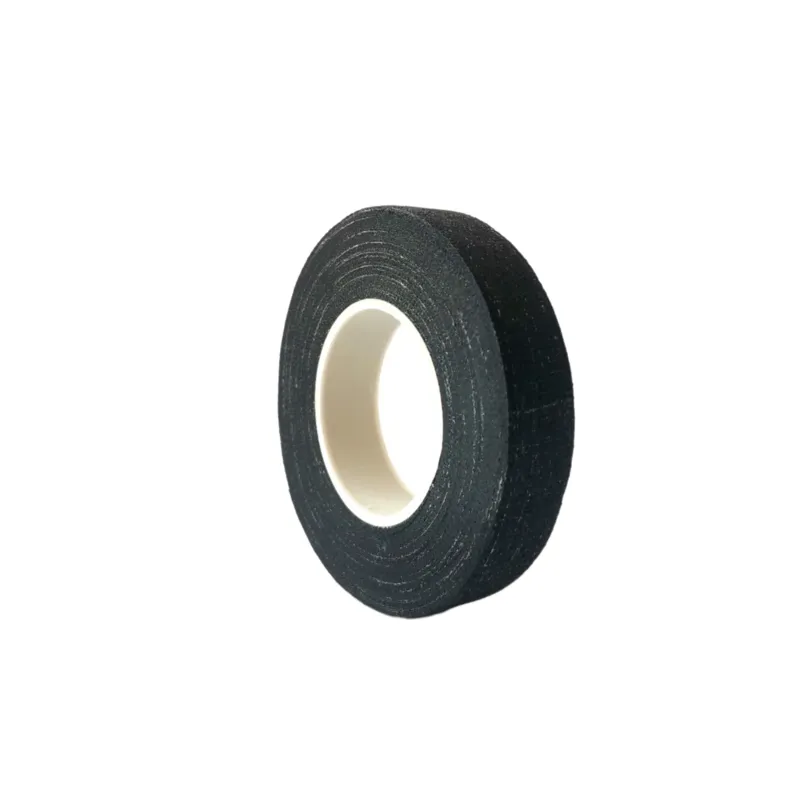Understanding the Factors Influencing Electrical Tape Prices
Electrical tape, a critical component in electrical work and DIY projects, is designed to insulate electrical wires, providing safety and protection against short circuits and electrical shocks. Despite its seemingly simple purpose, the price of electrical tape can vary significantly depending on various factors. Understanding these factors can help consumers and professionals make informed purchasing decisions, ensuring they get the best value for their investments.
1. Material Composition
One of the primary determinants of electrical tape pricing is the material from which it is made. Standard electrical tape is typically made from PVC (polyvinyl chloride), making it durable and resistant to wear and tear. However, the quality of the PVC can differ, leading to variations in price. High-quality PVC tape may cost more initially but can provide better performance and longevity, making it more economical in the long run.
In addition to PVC, there are specialty tapes made from other materials, such as vinyl or cloth. These specialty tapes often come with added features like higher heat resistance or improved flexibility, contributing to their higher cost. Consumers should consider their specific needs when choosing a tape, as the right material can significantly impact effectiveness and safety.
2. Brand Reputation
Brand reputation also plays a crucial role in determining electrical tape prices
. Well-known brands often charge a premium for their products due to established reliability and performance history. Consumers might be willing to pay more for trusted brands like 3M or Scotch, as these companies have invested in research and development, ensuring their products meet safety standards and industry specifications.Conversely, lesser-known brands may offer lower prices to attract budget-conscious consumers. While these options can be attractive financially, it's essential to consider the potential trade-offs regarding quality and reliability.
3. Thickness and Width
The thickness and width of electrical tape can also influence its price. Generally, thicker and wider tape provides better insulation but may come at a higher cost. Additionally, specialized widths are often more expensive due to their niche applications in various electrical projects. Consumers should assess the requirements of their tasks—using tape that is too thin or narrow may not provide adequate protection, while excessively thick tape might be unnecessary for simpler jobs.
electrical tape price

4. Quantity and Packaging
Purchasing electrical tape in bulk can lead to noticeable savings. Many retailers offer discounts for larger quantities, incentivizing bulk purchases for contractors or frequent DIY-ers. Additionally, packaging can affect price; rolls sold in multi-packs or with added features – such as carrying cases – may carry a higher price tag but can provide additional value to the buyer.
5. Market Competition and Geographic Location
Market competition can also impact electrical tape prices. In areas with multiple suppliers and retailers, consumers might benefit from more competitive pricing. Conversely, in regions where few suppliers exist, prices may be higher due to reduced competition.
Moreover, geographic location plays a significant role in pricing. Shipping costs, local demand, and supply chain logistics can all affect how much consumers pay for electrical tape. Urban areas might see more competitive pricing due to higher availability, while rural locations may experience increased costs due to logistics.
6. Technological Advances
Recent advancements in technology have led to the development of innovative electrical tapes that offer improved features, such as increased adhesive strength, UV resistance, or the ability to withstand extreme temperatures. These advancements often come at a premium price, but for many users, the added benefits can justify the cost, especially in demanding environments.
Conclusion
In summary, the price of electrical tape is influenced by multiple factors, including material composition, brand reputation, thickness and width, quantity and packaging, market competition, geographic location, and technological advancements. When purchasing electrical tape, consumers should assess their specific needs and consider these factors to make an informed decision. By understanding what drives the pricing in the electrical tape market, buyers can find the right product that balances quality and affordability, ensuring safety and efficiency in their electrical work.
-
XIANGFAN Rubber Tape-Ultimate Solutions for All Your Insulation NeedsNewsJun.24,2025
-
XIANGFAN Rubber Tape-Protection for Industrial and Residential ApplicationsNewsJun.24,2025
-
XIANGFAN Rubber Tape: Superior Safety and Sealing for Demanding EnvironmentsNewsJun.24,2025
-
XIANGFAN Rubber Tape: Reliable Solutions for Every Electrical ChallengeNewsJun.24,2025
-
XIANGFAN Electrical & Industrial Tape: Powering Reliability Across IndustriesNewsJun.24,2025
-
XIANGFAN Electrical & Industrial Tape: Excellence in Every ApplicationNewsJun.24,2025
